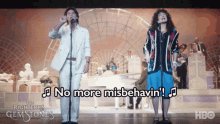Introduction
Typically I let the affiliate sites talk about how to do basic things like booking hotel rooms with points; after all those 14 credit card links don’t display themselves. Unfortunately though, the usual circles and arrows crowd have been derelict on the Accor front because (a) I don’t think most of them actually travel outside of the US and stay in non US hotel chains, (b) Accor ALL is somewhat non-trivial, and (c) something something affiliate revenue reasons. If you search google for “booking Accor with points”, you’ll find plenty of confused people too:
- [reddit] How do you book with points?
- [flyertalk] Can’t figure out how to redeem points
- [reddit] How to book on Accor using points? I don’t see the pay with points option
The responses to posts like the above are mostly useless too, again because (b) Accor ALL is somewhat non-trivial.
The Basics
Accor Hotels is basically like the European version of Marriott, but with lots more value and generally cleaner, nicer rooms. They also don’t loathe their customers which is a plus. Accor ALL points are worth a fixed 2 eurocents each, which is about 2.1 US cents with current exchange rates. With that out of the way, here’s what you need to know:
- All points redemptions are in increments of 2,000 (€40)
- Point redemption costs are exactly tied to the price of the room
- You can use points for part or for all of your stay
- The app and website won’t let you see points redemption options unless you already have at least 2,000 points in your account
- Point redemptions work for room charges too
- You can redeem with points during booking, during your stay, or during checkout
- The front desk can do redemptions over the phone or in person with your ALL number
- You can only pay with points online if there’s a prepaid rate available
Accor’s app and website often stop taking prepaid reservations in the last week of booking, but will still accept bookings that are paid at the hotel. When that happens, just reserve the cash rate and pay with points at the front desk during your stay. It’ll work out, it’s easy.
Getting Accor Points
Capital One miles and Citi ThankYou Points transfer to Accor ALL at a 2:1 ratio, and Bilt Rewards transfer at a 3:2 ratio. Citi occasionally has a 50% transfer bonus too, which is one of the few speculative transfer bonuses I take.
Good luck, and have a nice weekend!

Or there’s always the European Marriott experience if you don’t want to learn Accor.






















































